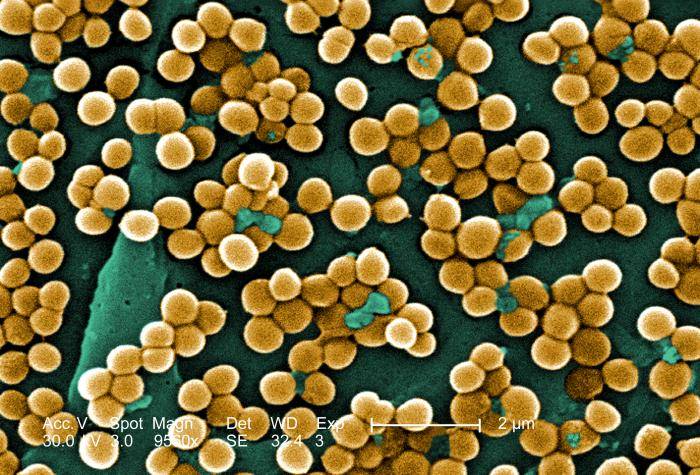.jpg)
I consider myself a bit of a scientist. Why? Well, my job requires me to know quite a bit about a lot of different scientific fields. Chemistry, biology, and probably most importantly microbiology. And microbiology is probably one of the more important fields because, among other things, it is the study of pathogens (disease causing organisms) and it is my primary responsibility to make sure that the surgical team does everything they can to ensure that the supplies and equipment we use on a patient is sterile (free from all microorganisms).
There is a ton of information that I'd like to share with you on this subject including the biggest culprits that we try to protect our patients from and what those bugs will do to your body, things that we do to ensure sterility, and how we scrub our hands to rid them of as much resident microflora (things that always reside on and in our skin) as we can. So I'm going to break this into bite size pieces. Let's start with the bacteria that are most commonly cause surgical site infections.

The most common cause of all surgical site infections is Staphlococcus aureus. Staph aureus is frequently part of the skin flora found in the nose and on skin and about 20% of the human population are long-term carriers of Staph aureus. S. aureus can cause a range of illnesses from minor skin infections, such as pimples, impetigo, boils (furuncles), cellulitis folliculitis, carbuncles, and abscesses, to life-threatening diseases such as pneumonia, meningitis, osteomyelitis (infection of the bone, bone marrow, and/or spinal cord), endocarditis (infection of inner lining of the heart) , toxic shock syndrome (TSS), and sepsis.

As you can see this can be a very serious infection to contract. But it can get worse. Most simple Staph infections can be treated with penicillin or another similar antibiotic. However, S. aureus has become resistant to many commonly used antibiotics. Ever heard of MRSA? That's Methicillin Resistant Staph aureus and it is a huge pain to treat.

Another fun bug is Staphlococcus Epidermidis. And as it's name suggests it lives on the outer layer of our skin (the epidermis layer). S. epidermidis is a major concern for people with catheters or other surgical implants because it is known to cause biofilms that grow on these devices. S. epidermidis is the cause of uriniary tract infections in patients who have had urinary catheters.
Others include Clostridium perfringens which evidence shows is the cause of tissue necrosis (tissue death), bacteremia ( bacteria in the blood), and gas gangrene. Streptococcus pyogenes can cause a wide range of illnesses including pharyngitis (strep throat), impetigo. and necrotizing fasciitis (the flesh eating disease).
I won't bore you with the complete list of bacteria that we fight against everyday but as you can see from just those, there are dangers. That's why it's so important for a surgical tech to know and understand how bacteria are spread, where they live, how they reproduce, and how to kill them. Microbiology is the cornerstone of being a surgical tech.
Learning and practicing sterile technique is also very important because after the supplies and equipment are free of micoorganisms we want them to stay that way. And in part 2 of this post I will explain to you just how we get and keep everything sterile.
Always,
Lisa Marie
Think about how many people ages ago didn't survive surgeries because of resulting infections. Preventing this can be almost as important as the surgery itself! Great info Lisa Marie. You so smart :-D
ReplyDeleteI pretty much love that you are almost always the first to post a comment! And you're so right. So many people died from postop infections simply because we didn't have the technology to know that these bugs were there. But now that we do, every surgical team member (espically techs) is very concerned with sterility. We call it Surgical Conscience and I'll tell you all about that one day too!
ReplyDelete